Ireland is renowned as the land of potatoes, and nowadays also, a great part of the sweet potatoes eaten in Europe have Irish roots. From their greenhouse and propagation laboratory, Beotanics creates plant material that is used in their own sweet potato propagation company in Portugal. “By growing our own mother plants, we can keep our entire chain virus-free,” says CEO Patrick Fitzgerald.
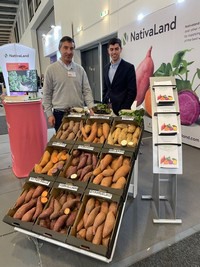 Seventy years ago, bell peppers were introduced in Western Europe. Thirty years ago, avocados made their entrance. And only 15 years ago, the team of Beotanics started selling sweet potato plants in Europe. Their family farm specialized originally in mixed farming, but following his interests in alternative crops, Patrick started to focus more on special plant products. “We started selling the sweet potato plants in 2006”, Patrick says. “To my knowledge, nobody was selling sweet potato plugs at that time.” The growers chose to collaborate with Louisiana State University AgCenter, experts in the field of sweet potatoes. They are also growing and selling their licensed varieties.
Seventy years ago, bell peppers were introduced in Western Europe. Thirty years ago, avocados made their entrance. And only 15 years ago, the team of Beotanics started selling sweet potato plants in Europe. Their family farm specialized originally in mixed farming, but following his interests in alternative crops, Patrick started to focus more on special plant products. “We started selling the sweet potato plants in 2006”, Patrick says. “To my knowledge, nobody was selling sweet potato plugs at that time.” The growers chose to collaborate with Louisiana State University AgCenter, experts in the field of sweet potatoes. They are also growing and selling their licensed varieties.
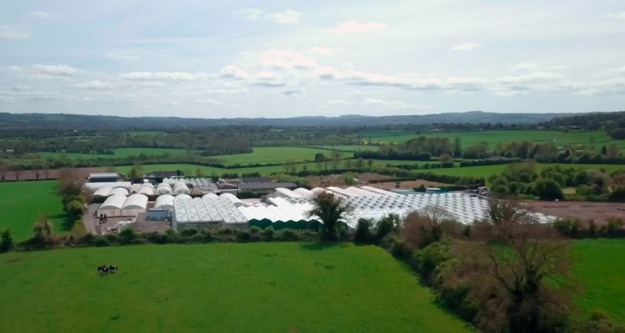
Growing market
The market has been growing ever since Beotanics started – and so did the company, and not only within the country’s borders. Since the cultivation of sweet potato plugs in Ireland became too expensive, Nativaland was set up: a Portuguese joint venture specialized in the propagation of plugs. “In terms of energy, Portugal is the best choice, but Ireland has a great climate for clean starting material. There’s no white fly, and insect control is much better than in Europe.” Each year the company tests new material from the University of Louisiana. In their own Irish tissue culture lab, they multiply it and send the rooted plants to Portugal, a strategy they have already developed for the mini-tuber market. “This way, we know they can start with the cleanest material possible.”
According to Patrick, this is of high importance since sweet potatoes are a niche crop, relatively unknown to Europe, and dealing with a whole different set of diseases and threats. “Sweet potatoes have been here for over 400 years but weren’t agronomist up until a few years ago. There are no regulations in place, and there’s a high risk of diseases threatening the crop. It currently isn’t protected. In the future, we hope the potato regulations will be adapted to the sweet potato industry as well since it’s a very suitable solution and would protect the industry, but aside from that, we should keep our starting material safe anyhow.”
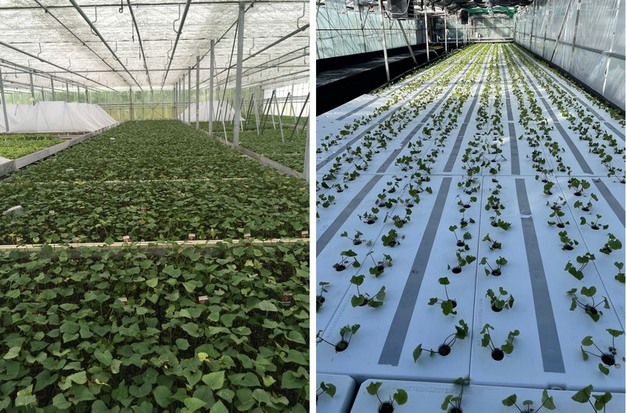
Upgraded farm
The farm in Ireland is adapted completely to do so. Recent upgrades include a new greenhouse and a complete update of the 15-year-old facility. Ebb & flood floors, insect screens, full water circulation – it’s all there. Working with a HortOS system and a Mienis water solution enables the company to work without discharging anything.
Patrick explains how sustainability is a big word in the company. “We always have and continue to live on our farm, which is why we want to be as sustainable and as environmentally friendly as possible. We do not want to spread pathogens. We don’t have fertilizer going into the ground. It’s all recirculated.” Also, LED lights were installed to reach their goals. “Our previous sodium lighting cost a lot more in operation. We converted to LED last year – an investment that came on time for the energy crisis – and now only have a small percentage of sodium lamps left, which we use in our R&D greenhouse.”
With these investments, Beotanics pre-sorts for a growing market, although he makes clear it’s not an elevator, it’s stairs. “There’s been a big growth, so we expect the market to stay on the same level for some years and go up after it again.” He estimates that the sweet potato industry will need another ten years to mature in agriculture. “The processing market will show more growth than the fresh market. From a five-year perspective, I expect to see continued growth in the agricultural production of sweet potatoes, but where it will end up in the supply chain is not obvious.
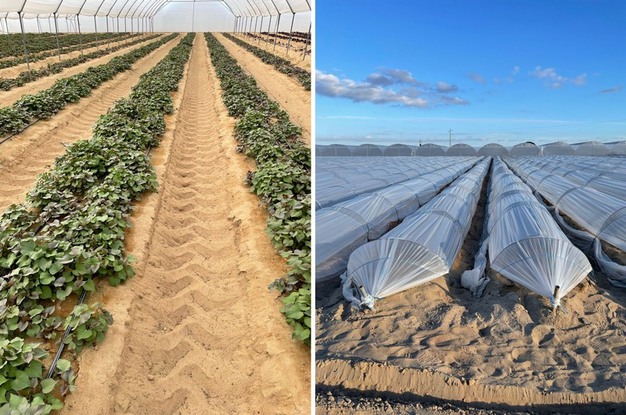
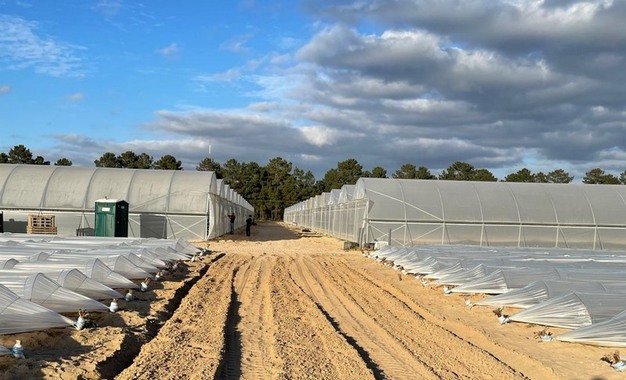 Nativaland photos, where the young plants are being propagated
Nativaland photos, where the young plants are being propagated
Psychology of agriculture
Growing up in the industry has taught him all about the psychology of agriculture – something that has happened since the Tulipmania many centuries ago, and the sweet potato industry has also seen people entering in the hope of getting rich quickly, but according to Patrick, it doesn’t work that way. “It’s often ‘boost and boom’: blow up and being too much afterward. We opt for stable growth: not too big, not too slow, and keeping our focus on quality by working with partners such as Louisiana State University. I don’t know if we’re right or wrong, and being passionate about the product also means having to be careful not to be Mr. Know-It-All, but I have lots of faith in sweet potatoes as a European crop. I believe it’s good for the diet and is here to stay.”
Contaminated plant material
“Our varieties are resistant against specific diseases and pests of sweet potatoes, we ensure they are virus clean, which can be a serious threat to the yield.” Some viruses result in a harvest that’s 40 percent smaller. In the US, in particular, this is something growers are contending with for many years. “We have a laboratory in Ireland in which we follow American guidelines for plant health, which means we specifically test for sweet potato viruses. The contamination in plant material is one of the biggest challenges in European production, and a lot more needs to be done to protect crop health.”
For more information:
Patrick FitzGerald
Beotanics - FitzGerald Nurseries
Tel.: +353 (0)56 7728418
Fax:+353 (0)56 7728481
pat@beotanics.com
www.beotanics.com
